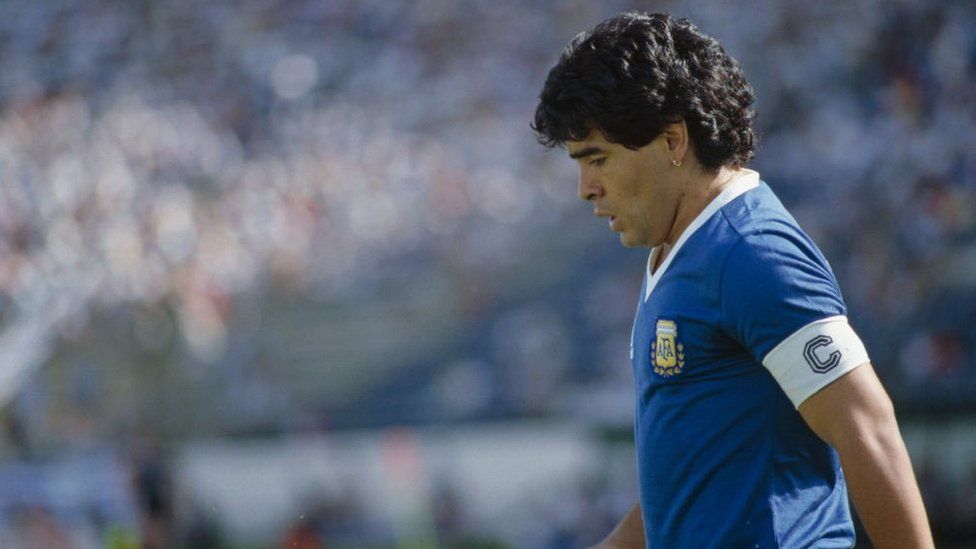Maradona died in November 2020 of a heart attack in Buenos Aires, aged 60.
He had been recovering at home from surgery on a brain blood clot earlier that month.
A few days after his death Argentine prosecutors launched an investigation into the doctors and nurses involved in his care.
Last year, the panel of 20 experts appointed to examine his death found Maradona's medical team acted in an "inappropriate, deficient and reckless manner".
It also concluded that the footballer "would have had a better chance of survival" with adequate treatment in an appropriate medical facility, according to the court ruling.
Among those facing charges are Maradona's neurosurgeon and personal doctor, Leopoldo Luque, a psychiatrist and psychologist, two doctors, two nurses and their boss. They have all denied responsibility for his death.
All eight will be tried on a legal definition of homicide based on negligence committed in the knowledge that it may lead to a person's death.
The crime can hold a sentence of eight to 25 years in prison, according to Argentina's penal code. A date for the trial is yet to be set.
Mario Baudry, a lawyer for one of Maradona's sons, told Reuters that the football legend was "in a situation of helplessness" by the time of his death.
"As soon as I saw the cause, I said it was homicide. I fought for a long time and here we are, with this stage completed," he said.
The legal proceedings were prompted by a complaint filed by two of Maradona's daughters. They raised concerns about their father's treatment after the brain operation.
In an emotional press conference in November 2020, Dr Luque cried, saying he had done all he could to save the life of a friend.
At one point, the doctor shot back at reporters: "You want to know what I am responsible for? For having loved him, for having taken care of him, for having extended his life, for having improved it to the end."
The doctor said he had done "everything he could, up to the impossible".
Diego Maradona is largely considered to be one of the greatest footballers to ever play the game. He was captain when Argentina won the 1986 World Cup, scoring the famous 'Hand of God' goal against England in the quarter-finals.
During the second half of his career, Maradona struggled with cocaine addiction and was banned for 15 months after testing positive for the drug in 1991.
The news of his death threw the football world - and his home country of Argentina - into deep mourning, with many thousands of people queuing for hours to walk by his coffin at the presidential palace in Buenos Aires.
Not even the most fanatical Maradona supporter would deny the damage that years of addiction had done to his body or the debilitating effects of his gruelling brain surgery. Yet there was a sense in Argentina that, aged just 60, probably the greatest player ever to have graced the pitch was taken before his time.
As the demands for answers grew with each revelation about his treatment, the subsequent findings by the medical panel were damning in the extreme.
The outpouring of grief and respect in Argentina following Maradona's death is still fresh in the memory - when thousands of fans trooped past his flag-draped coffin in tears in the presidential palace over three days of national mourning.
It was far earlier than they had wanted to say goodbye to him. These charges may at least provide them with answers over the exact circumstances behind the death of one of Argentina's greatest sons.

